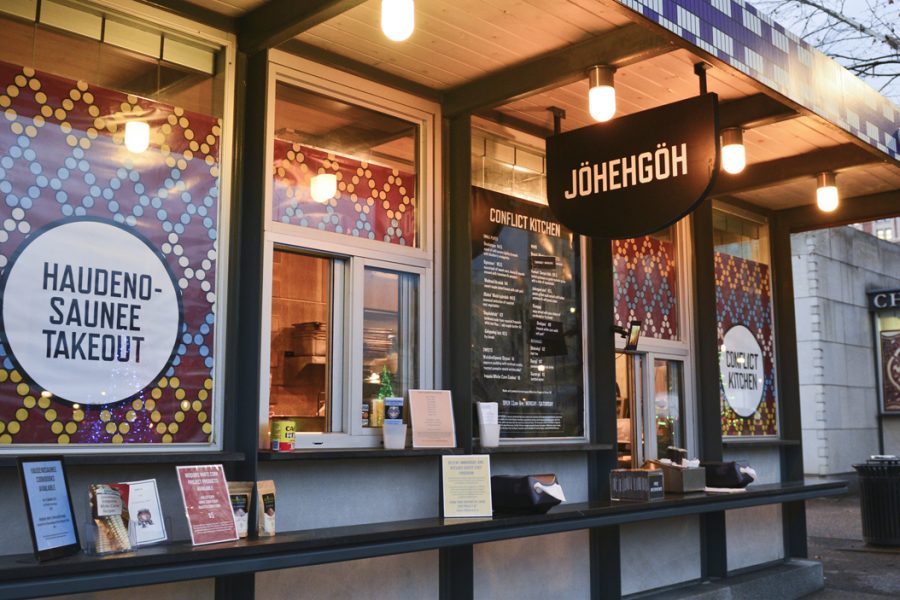Conflict Kitchen has been spotlighting global conflicts for more than six years, but this year it’s turning the spotlight back toward its own home.
Through a partnership with the Sprout Fund — an organization funding politically engaged projects throughout the country — the take-out restaurant co-founders and co-directors Jon Rubin and Dawn Weleski will launch a new Guest Chef Program in March. The program will feature immigrant and refugee chefs living in Pittsburgh, who will collaborate with different restaurants around the city to design new menu items reflecting their culture. During the project, Conflict Kitchen will continue to produce their own, separate, rotating menu.
Initially, Conflict Kitchen will be working with immigrant chefs with whom they’ve already partnered. The kitchen has worked with immigrant and refugee populations from their previous focus countries including Iran, Afghanistan, Palestine, North Korea, Cuba and Venezuela.
In the later months of the program, Conflict Kitchen will be sponsoring chefs with whom they have not worked.
“From a culinary viewpoint, we hope to allow the culture and cuisine of each chef’s home country to speak through their food,” Rubin said.
Each month, a new guest chef will develop one to three menu items based on their home culture. The selection will then be featured on the menu of different restaurants in the Pittsburgh area. The list of participating restaurants has not been released yet.
“The larger purpose of this project is the same as Conflict Kitchen’s overarching goal: to recognize the common humanity of people from countries our government is at odds with and amplify their perspectives and culture in our city and country,” Weleski said.
The Guest Chef Program was born out of the Sprout Fund’s 100 Days of US project, a series of grants focused on civic engagement and community action in the first 100 days of the new presidential administration. The grants totaled to $130,000, of which $30,000 was raised through crowd-funding. The Sprout Fund distributed 25 grants to a pool of 150 applicants.
Ryan Coon, program officer of the Sprout Fund, said many people talk about the president’s agenda in the first 100 days of their administration, but his organization wanted to focus more on Americans’ own actions in those first days of the new administration.
“We wanted to support small-scale, local, on-the-ground communities who can establish and see through their own agenda as well,” Coon said. “We wanted to support projects that try to help people start new dialogues across that gulf of difference.”
Conflict Kitchen regularly features cuisine native to a focus country with which the United States is in conflict, whether militarily, politically or economically. For each focus country, the restaurant gives out an informational pamphlet describing its current significance, as well as citizens’ testimonials about their lives.
But while the restaurant is familiar with international ingredients, the idea of incorporating international chefs is new. Following the presidential election, Rubin and Weleski brainstormed how to extend political messages beyond the Schenley Plaza.
“We decided to highlight the positive impact and unique stories of the immigrant and refugee communities here in Pittsburgh,” Weleski said.
Throughout President Trump’s campaign, he frequently opposed letting large groups of refugees into the country, often citing fears of inviting terrorism onto American soil.
Coon said that partisan politics were at the front and center of this election, and that the 100-Days project aimed to enforce the ideas of “unity and dialogue” to combat that. He added that the Guest Chef Program took an interesting approach redefining the Conflict Kitchen’s current context. As it stands, Conflict Kitchen works out of the “academic heart of the city,” but this project would extend its reach to other parts of the city.
“[Now], the message moves out to other restaurants, around the city, around the region and in parts of town where they haven’t been doing that yet,” he said.



